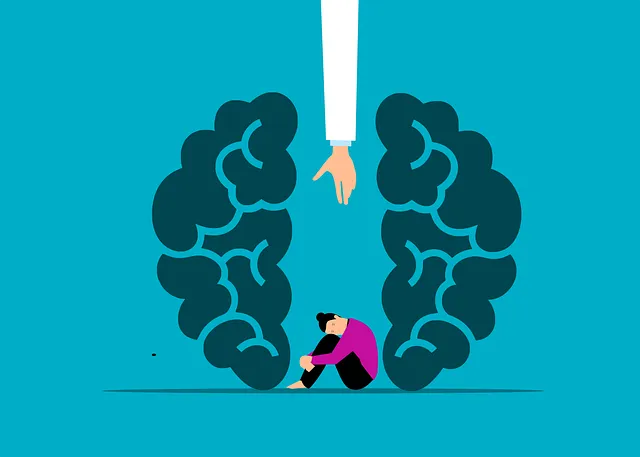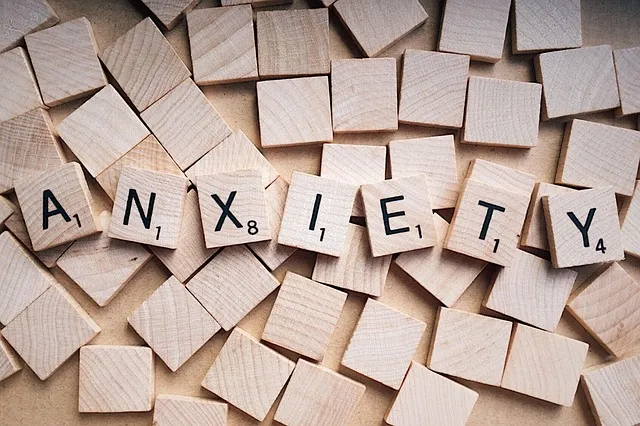Kaiser Permanente mental health services in Westminster prioritize stress management as a key component of holistic well-being. By teaching effective coping mechanisms, mindfulness, and meditation, they empower healthcare professionals and individuals to combat stress, anxiety, and burnout. This approach not only benefits personal lives but also improves professional performance in high-pressure situations, ultimately enhancing the quality of care provided within the community centered around Kaiser Permanente mental health Westminster.
“Unwind and reclaim your calm with an exploration of effective stress management techniques. This article delves into the multifaceted approach to mental well-being, particularly highlighting strategies adopted by healthcare giants like Kaiser Permanente in Westminster. We examine the profound impact of stress on mental health and offer practical solutions for daily life. Discover the power of mindfulness and meditation, and learn long-term resilience-building strategies to mitigate stress effectively.”
- Understanding Stress: Its Impact on Mental Health
- Kaiser Permanente's Approach to Mental Well-being
- Effective Stress Management Techniques for Daily Life
- The Role of Mindfulness and Meditation in Westminster
- Building Resilience: Long-term Stress Mitigation Strategies
Understanding Stress: Its Impact on Mental Health

Stress is a ubiquitous aspect of modern life, but its impact on mental health cannot be overstated. When managed effectively, stress can be a catalyst for growth and resilience; however, chronic or prolonged stress can lead to significant mental health issues such as anxiety, depression, and burnout. Healthcare providers, like those at Kaiser Permanente in Westminster, play a crucial role in teaching others how to navigate life’s stressors. They understand that without proper coping mechanisms, stress can disrupt one’s sense of well-being, affecting not just their personal lives but also their ability to provide quality care.
The consequences of unchecked stress are far-reaching. It can impair cognitive function, diminish motivation, and lead to physical ailments. In the healthcare sector, where professionals often face high-pressure situations on a daily basis, burnout prevention strategies for healthcare providers have become essential components in maintaining mental wellness coaching programs development. Inner strength development is key; encouraging individuals to cultivate strong coping mechanisms allows them to confront stress head-on, thereby fostering a more positive and resilient mindset that benefits both personal life and professional practice.
Kaiser Permanente's Approach to Mental Well-being

Kaiser Permanente, a healthcare organization with roots in the vibrant community of Westminster, takes mental well-being seriously. Their approach to stress management and mental health teaching goes beyond traditional treatments, focusing on holistic care that empowers individuals. Through comprehensive programs, they offer a unique blend of medical expertise and supportive services designed to foster emotional healing processes.
The network’s commitment extends into training, emphasizing the importance of communication strategies for mental health professionals. Their Risk Assessment tools equip practitioners with effective methods to identify and address client needs, ensuring a tailored and compassionate support system. By integrating these innovative practices, Kaiser Permanente strives to create a resilient and healthy community where individuals can navigate life’s challenges with enhanced coping mechanisms.
Effective Stress Management Techniques for Daily Life

Stress management is a vital component of maintaining good mental health, and organizations like Kaiser Permanente’s mental health services in Westminster offer valuable resources for learning effective techniques. One powerful approach is to develop coping skills that can be readily applied in daily life. Simple yet effective strategies include deep breathing exercises, mindfulness meditation, and physical activity—all backed by scientific research showing their positive impact on stress reduction.
By incorporating self-care routines into their lives, individuals can better manage stress. This includes setting aside dedicated time for activities like yoga, journaling, or spending time in nature. Such practices promote a sense of calm and resilience, helping one to navigate life’s challenges with greater ease. Moreover, seeking support from trauma support services can be transformative, providing specialized coping mechanisms tailored to individual needs.
The Role of Mindfulness and Meditation in Westminster

In Westminster, Kaiser Permanente mental health services emphasize the power of mindfulness and meditation as core components of stress management teaching. These practices are not just trends but evidence-based tools designed to help individuals cultivate inner strength, improve self-esteem, and develop compassion for themselves and others. By incorporating mindfulness into daily routines, individuals can learn to navigate life’s challenges with greater resilience and emotional balance.
Westminster’s approach integrates these techniques into comprehensive programs aimed at enhancing overall well-being. Through guided meditations, mindfulness exercises, and compassionate cultivation practices, participants gain a deeper understanding of their thoughts and emotions, allowing them to respond—not react—to stressful situations. This inner transformation fosters a sense of calm and clarity that can significantly improve mental health outcomes as advocated by Kaiser Permanente Westminster.
Building Resilience: Long-term Stress Mitigation Strategies

Building resilience is a key aspect of long-term stress management, and it’s an area where Kaiser Permanente mental health services in Westminster can play a vital role. By teaching effective coping strategies, these programs empower individuals to navigate life’s challenges with greater ease. One such strategy involves fostering self-esteem improvement, which serves as a shield against stress and anxiety. Mental health awareness is enhanced when people learn to recognize their worth and value, leading to a more positive mindset.
Additionally, developing a consistent self-care routine can significantly contribute to stress reduction. Encouraging individuals to prioritize their mental well-being through activities like exercise, mindfulness practices, or creative outlets can make a substantial difference. These routines not only provide momentary relief from stress but also build long-lasting resilience, enabling people to better manage stressors that may arise in their personal and professional lives.
In conclusion, managing stress effectively is a vital component of maintaining good mental health, as highlighted by Kaiser Permanente’s comprehensive approach. By understanding the impact of stress on our well-being and employing techniques like mindfulness, meditation, and building resilience, we can significantly improve our quality of life. These strategies, explored in detail with reference to Kaiser Permanente’s initiatives in Westminster, offer practical tools for navigating the challenges of daily life. Adopting these practices can lead to a more balanced and resilient state of mental health, ensuring a brighter and less stressful future.






